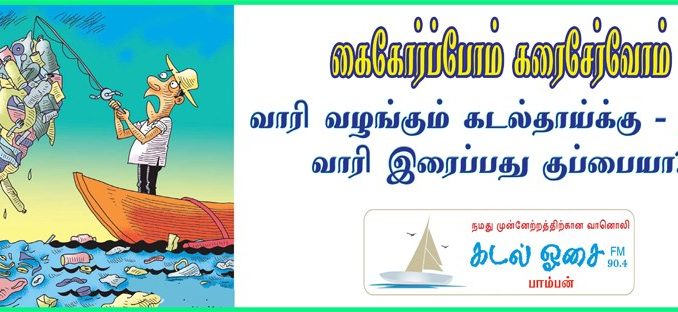
Kadal Osai 90.4 FM in India’s southern state of Tamilnadu is the country’s first and only radio channel for fisherfolk which also raises social and environmental awareness.
Armstrong Fernando from Ramanathapuram district’s Pamban town started the station, whose name means ‘Sound of the Sea’, about five years ago. The station now has a team of 12 members.
Pamban island is located between peninsular India and Sri Lanka, with a population of over 100,000 out of whom 80 percent are engaged in fishing.
The 24/7 channel provides weather updates, information on potential fishing zones, local news, traditional music and promotes marine conservation. It also serves as a direct link between the government and the community to quickly resolve people’s problems, from receiving government incentives to purchasing tokens for fishing.
The station also ran a successful initiative to conserve endangered species who would often get entangled along in the fishermen’s nets along with the fish.
Radio Kadal Osai began rewarding fishermen with INR 1,000 ($13.35) if they released trapped turtles to the ocean while capturing the moment on their phones.
“This became a huge success. A lot of fishermen sent us videos of them releasing turtles to the sea. We give them cash rewards and also announce their names on the radio. This also helped to create awareness about the conservation of sea turtles,” Gayathri Usman, the station head of Kadal Osai told TRT World.
“People now don’t take plastic bags to the sea. They are cautious and aware that polluting the sea would directly affect their livelihood,” she added.
The station has also been educating people about pandemic-related issues and debunking disinformation about the virus.
Lenin, who works as the channel’s programming coordinator, told TRT: “The radio has a great influence in the lives of the people who listen to it [compared to] TV, social media or word of mouth. People acknowledge that there is little possibility of being misinformed on this medium.”
